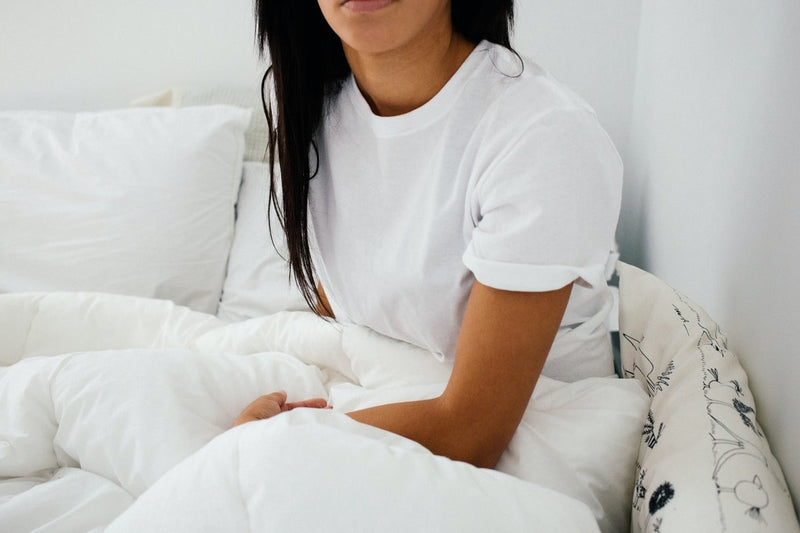- Fact Checked
- June 22, 2020
- 8 min read


Bacterial vaginosis doesn’t cause serious women’s health problems. Still, the symptoms of BV, such as excessive vaginal discharge, fishy odor, itch, and irritation, can take a toll on your confidence and self-esteem, which impacts your life in greater ways than people might think.
Fighting off these symptoms, especially if they are recurring, is not an easy feat. It requires habit changing, confidence, and persistence. It also requires not doing one of the dozens of home remedies that are not proven and may not yield long-lasting results.
However, there are several things that you can do at home to treat BV. One of them is taking Apple Cider Vinegar, or ACV, which is a proven remedy for BV.
In a qualitative research study completed in 2016, there were 35 women involved who had recurrent BV and reported that they didn’t like taking antibiotics for BV. This was due to the fact that when taking antibiotics it caused adverse side effects for their BV to resurface soon after the treatment was completed. (1)
In another study conducted there were 121 women with BV who were treated with the recommended treatment of antibiotics observed over 12 months. What scientists discovered was that about 58% of these women experienced a recurrence of BV whereas 69% experienced recurrence of vaginal dysbiosis. (2)
However, other than just side effects and recurrence of BV at the end of antibiotic treatment, these women experienced clinical care that resulted in inconsistent advice, misdiagnosis, or dismissive attitude from physicians. Leading these women to take matters into their own hands and resort to lifestyle modifications and home remedies.
Because of limited options to prevent BV, we have made it our duty to guide and give you our educated suggestions on such remedies.

If you are looking for natural remedies for BV that may help with the symptoms, you should definitely try Apple Cider Vinegar, or ACV, for BV.
Take a tablespoon of ACV, add it into a glass of water to dilute it, then mix it well and drink it up. You can also add some honey to make it taste a little better.
Apple Cider Vinegar is prepared by crushing apples and then fermenting them. Fermentation turns the natural sugars in the apple into alcohol. Alcohol, again, ferments to form a molecule known as acetic acid. Acetic acid is the active ingredient in Apple Cider Vinegar which might help with preventing BV odor and BV infection.
The acetic acid in Apple Cider Vinegar supports the growth of beneficial types of bacteria throughout the digestive tract, which thrive in a slightly acidic environment. This is similar to the action of lactic acid-forming bacteria (Lactobacillus) and yeast commonly found within probiotics for vaginal health. These strains of microbes acidify the gut through the production of lactic acid, similar to the action of acetic acid found in vinegar. (3)
1. Acetic acid, a major component of Apple Cider Vinegar, has shown to have strong antibacterial properties. In an article published in 2018, the antibacterial properties of Apple Cider Vinegar on common bacteria involved in vaginal infections such as E. Coli, S. Aureus, and C. Albicans. The concentration of ACV tablets at which no growth was seen, varied by different bacteria.
2. Along with other acids, Apple Cider Vinegar also has lactic acid, which keeps a strong check on bacterial growth in your vagina and helps to balance vaginal ph. (3)
3. Apple Cider Vinegar can treat your vaginal yeast infections too. A study conducted in 2015 shows that it has strong antifungal properties as well. (5)

Having strong antibacterial properties and being acidic in nature, ACV can definitely help you fight off disease-causing organisms such as C. Albicans. And with its acetic acid, improving the gut’s biome translates to an overall better probiotic profile throughout the entire body. However, in order to treat BV, you must also replenish your Lactobacilli storage in your vagina. This can be done by adding probiotics containing Lactobacilli into your diet.
As the saying goes – too much of anything isn’t always good. Taking ACV in appropriate amounts can help you deal with your BV symptoms. However, taking too much can cause negative side effects.
But, if you are taking Apple Cider Vinegar slowly and consistently, these aren’t things to worry about!
If you are opting for Apple Cider Vinegar as a DIY home remedy for treating and preventing BV and other common vaginal infections, make sure to take it in low doses, do not take it too often, and always dilute it with water and honey.
Apple Cider Vinegar is not the only natural remedy for BV. There are several things that you can do to help minimize the recurrence and intensity of Bacterial Vaginosis and other vaginal infections.
ACV has been used for centuries for its numerous benefits on women’s health. It has the capability to inhibit bacterial growth and eliminate them. Being that it’s acidic in nature, it can also help to balance your vaginal pH. Therefore, it can be added to your daily routine for your overall health.
You need to be careful about how much you take in – Apple Cider Vinegar should always be taken in appropriate ways and doses. Excess can be harmful, and you don’t want any other problems while already dealing with one.
Lastly, seeking medical advice from your doctor or gynecologist before you self-diagnose is always better. If you are experiencing any signs or symptoms of BV, make sure to talk to your gynecologist first. He may prescribe you treatment or recommend over the counter options for treatment.
Our experts continually monitor the health and wellness space, and we update our articles when new information becomes available.
Table of Contents
Our experts continually monitor the health and wellness space, and we update our articles when new information becomes available.